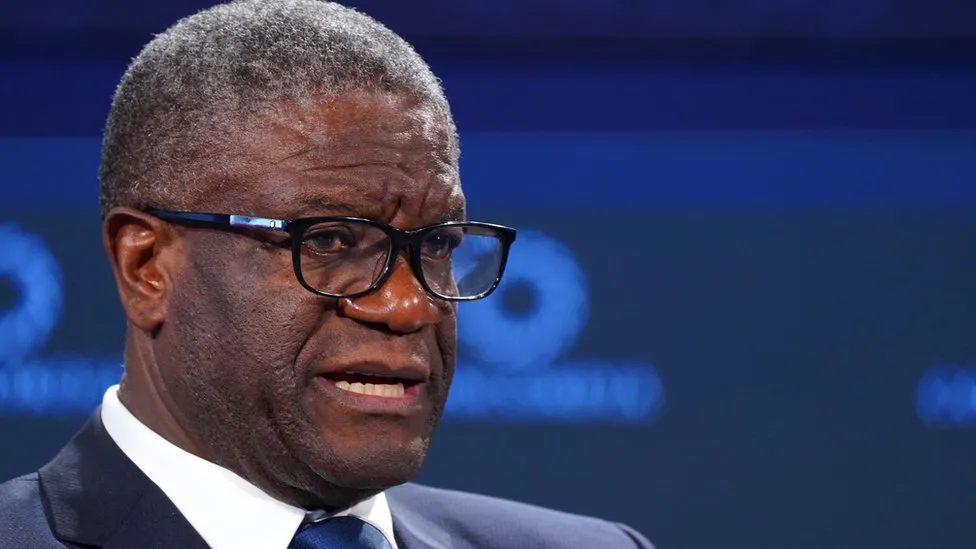
The civil war in Democratic Republic of Congo started in 1998 and lasted until 2003. It was a complex conflict involving multiple armed groups and different militia from several neighbouring countries. The consequences of the war were devastating, with millions of lives lost and widespread displacement of people. The UN says the war in Congo was caused by disputes over control of the region’s rich natural resources, including Diamond and Cobalt.
The war displaced millions of citizens and caused a widespread humanitarian crisis which included starvation and brutal rape by armed soldiers. Soldiers used rape as a weapon of war against the local women and made sure to create physical harm on them. They also perpetuated a cycle of fear, stigma, and long-term social and mental health problems.
Thousands of women went through this horrifying events because they were simply seen as toys and tools to get even with local villagers who resisted the invading soldiers. Some of the women raped eventually realised they were pregnant as they continued to flee on foot to different refugee camps in and around the Congo thereby having to deal with another round of trauma giving birth to kids they never wished for or could cater for admist the devastating crisis.
In the midst of the civil war, several volunteers and health service workers tried to create a sort of rehabilitation process for these affected women. Among those who stood out were Dr. Denis Mukwege, a renowned Congolese gynaecologist who dedicated his life to treating survivors of sexual violence, and activists Christine Schuler-Deschryver who was a daughter to a Belgian Colonial master. They both built a clinic and rehabilitation centre ( for casualties) which came to be known as “city of joy”. This became a shelter for women and young girls who were victims of rape thereby giving them adequate medical treatment and a vocational centre to enlighten and equip them with gainful skills for a new beginning.
One of the success stories of this rehabilitative programme was that of a poor village trader named Jane who narrated her story thus: ”One night I was in my house and the soldiers came out of the dark, took me and my uncle to a nearby bush, cut his hands, legs and plucked his eyes while he cried in agony.
The soldiers then took turns to rape me. At a point, I lost consciousness only to wake up to being tied up to a tree. The invading soldiers had left me for dead while the stench from my uncle’s lifeless body filled the air, I continued to wonder in the wild until some rebel soldiers found and transported me to Bukavu. The Doctors at City of Joy found out that I was four months pregnant, but with the help of mental health professionals, I got hope which I thought was forever lost.”
The City of Joy, shows the transformative power of rehabilitation programmes for Jane and thousands of women who graduate every year. These initiatives serve as beacons of hope in a land scarred by conflict, demonstrating that even in the aftermath of unimaginable trauma, healing and a new beginning at life are possible. While the scars of the Congo’s civil war remain, the stories of resilience and strength among these women inspire us to advocate for a world where such atrocities are not only condemned but actively prevented, ensuring a brighter and more secure future for all.
Women leaving the City of Joy have had the opportunity to heal from their emotional wounds, live in communites, recognize their leadership potentials and gain valuable skills they can apply to their lives.
In a society that has for the most part rejected women survivors of violence, it is extraordinary to see a group of women so empowered and determined.Through an intensive programme, women are successfully learning invaluable skills that they can apply to their lives as leaders in Congolese community. Graduates have integrated back into their communities as true leaders, sharing the skills and information they learned at the City of Joy with their peers and families, starting non profits (including orphanages and homes for the elderly), launching small businesses, leading at the community level, working as journalists and farmers, and returning to school to further their education. In so many ways, the center is a success.
In conclusion war worsens sexual violence which makes it hard to prevent rape.Preventing war is essential to protect the citizens especially women . Peaceful resolution of conflicts before they escalate to war and international cooperation can help in creating an environment where such acts are prevented. Let us join hands to ensure safe communities and encourage even a safer world for women and girls to thrive.
Faleke Oluwakiite wrote in from Veritas University, Abuja
